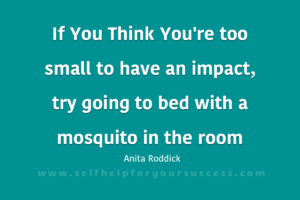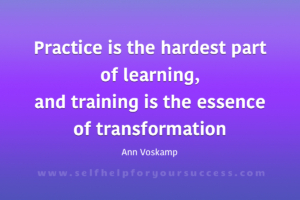Just think for a second: what’s the one thing that stops most of us speaking in public?
It’s fear, isn’t it?
- Fear that you’ll make a fool of yourself
- Fear that you’ll forget your words
- Fear that you won’t be able to control your nerves
Do you feel like that?
I did, I used to dread getting up in public; it made me feel physically sick. I was comfortable doing a workshop for a small group, or speaking to people one-to-one; but put me in front of a big crowd, and I would be a nervous wreck. My heart would be pounding so hard and loud that I imagined people could hear it all around the room. My hands would shake, and I’d go bright red with embarrassment. That’s one of the reasons I joined a speaking group, to help overcome my nerves. Since then I’ve learnt to overcome my fears, and feel far more comfortable and confident about speaking in public. I still get nervous, but they no longer control me.
Have you ever had any fear about public speaking? Well, if you have then fear no more.
I’m going to share 3 easy steps, that I learnt, that helped me to overcome fear and feel far more confident.
- Speak about what you know
- Plan and prepare
- Rehearse, rehearse, rehearse
Do all these things, and you can overcome fear and feel far more confident.
1 Speak about what you know
When we’re talking with our friends, family, colleagues and customers we very rarely dry up or get anxious. In fact, it’s often quite the opposite: we feel very comfortable and confident. Why is that?
It’s usually because you’re talking about:
- What you know
- What you’re interested in
- What you’re passionate about
So when you speak in public, if you talk about what you know using your own experiences, examples or stories, you will feel far more comfortable. This will help you to overcome fear and feel far more confident.
2 Plan and prepare
We all want to feel more confident – none of us want to dry up, and forget where we’re going with the speech. One of the ways to stop this from happening is to plan and prepare your talk. It’s a bit like going on a journey: you wouldn’t go on a long journey to a meeting, say from New York to London, without planning the route. You’d find out the best way to get there, what transport to use and how long it would take. Most of us would check all this out before leaving for our destination. That’s just how you should treat your speech.
Once you decide what you’re going to talk about, you need to decide where you want to go with the talk. What journey you want to take your audience on. Youe need to map out your talk. This will help you to get to know the route and structure so well that you won’t get lost:
- The Introduction: this is the start of your audience’s journey
- The main body of the talk, usually split into 3/4 main points: this is the route you take them on
- The conclusion: the final destination, they know they have arrived and the speech has ended
At university one of my tutors once gave me this great piece of advice: when writing or speaking we need to remember this very simple formula
- Introduction = You tell them what you’re going to tell them
- Main Body = You tell them
- Conclusion = You tell them what you told them
You can’t do this if you don’t plan and prepare. If you map out the journey, and set the route, it helps you to stay on track; your audience will know where you’re going. That helps them understand what you’re talking about. When you know the structure you feel more in control, less anxious about forgetting what comes next. This all helps you to overcome fear and feel far more confident.
3 Rehearse, rehearse, rehearse
If you want to feel more confident about delivering your speech, you need to be like an actor and learn your part. You may be thinking, “That’s too difficult”, “I could never do that”. But just remember: how did you learn your times tables or Alphabet?
We learnt them through repetition, didn’t we?
There are many ways to rehearse, and learn your speech:
- Some people practise by reading their speech over and over again until they can remember the words.
- Others record themselves saying the speech, then listen to themselves.
- People often get a friend or partner to video them on their phone or tablet. Then watch, and see how they look, as well as how they sound.
- I practise in front of my husband until I get comfortable with my speech; he helps by encouraging and giving me positive feedback. This helps me only learn the speech, but to tinker with it, and change it for the better.
- Be like a ballet dancer and practise in front of a mirror. Not only will you hear what you sound like, you can see what your body language looks like to the audience.
- Close your eyes and practise visualising yourself doing the speech all the way through, like a professional. Imagine yourself feeling really confident, enjoying the feeling of the audience giving you a rapturous response. Use your mind and body together, allowing your imagination and creativity to enhance the picture. Let yourself feel what it’s like to hear the audience applaud. Just think 3D, HD and surround sound. The louder, the bigger, the brighter, the better. Doing this exercise, several times every day up to your speech, will work wonders.
- You can also practise breathing in while saying re, and when breathing out say lax to control your nerves (re-lax). There are lots of videos and articles on the web that cover this in far more depth. Just find out which one works best for you.
Now you have reached your final destination; you can clearly see the route you need to take, if you want to overcome your fear. All you have to do is to remember to:
- Speak about what you know
- Plan and prepare
- Rehearse, rehearse, rehearse – relentlessly!
Take these 3 easy steps, and you will feel far more confident.
Susan McCann



